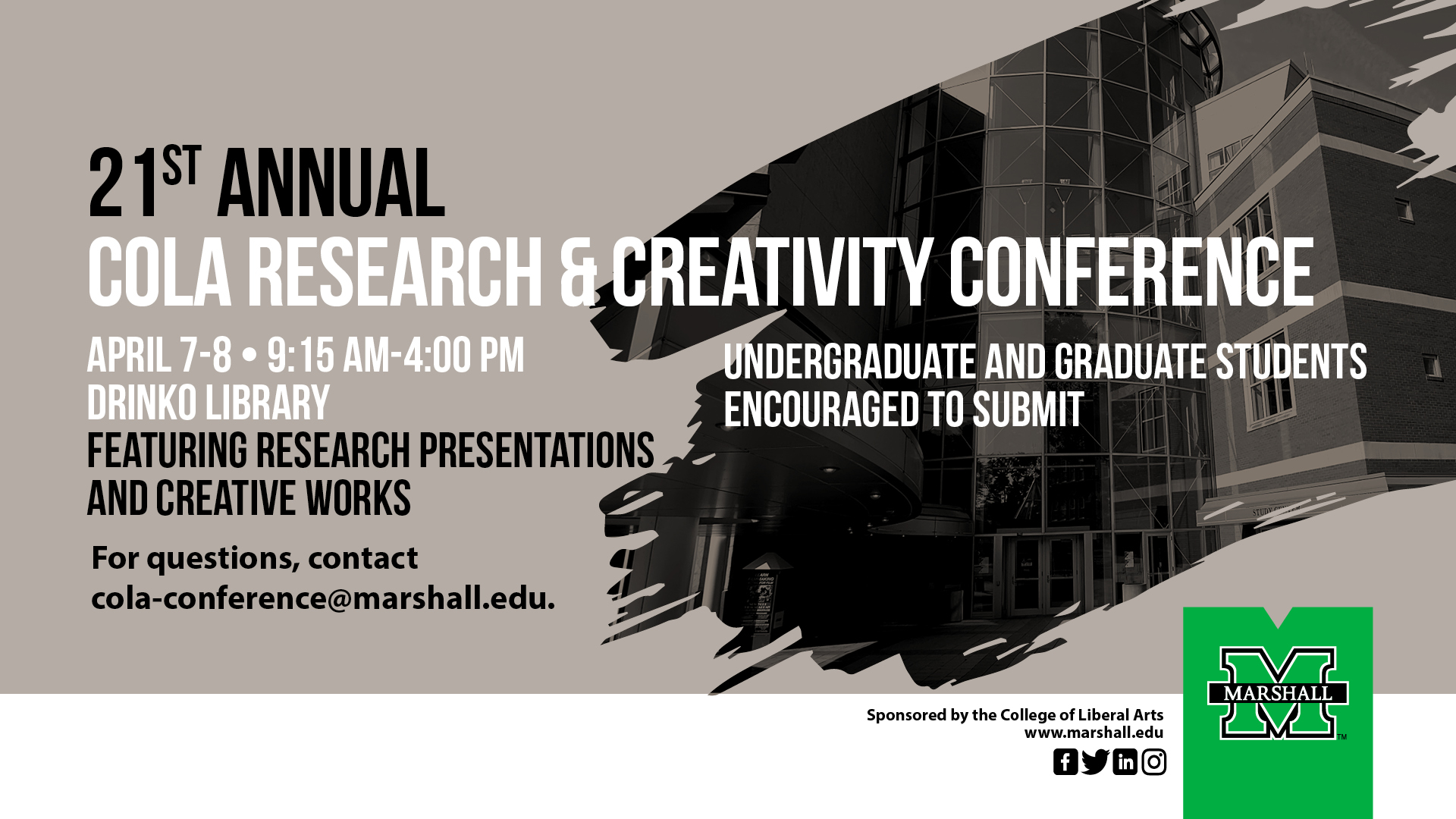Health Literacy and Attitudes Towards Healthcare in Aging Appalachians
Document Type
Poster Presentation
Keywords
Health Literacy, Aging, Appalachia
Biography
Rikki is currently in a graduate program for Clinical Psychology. She enjoys learning about others and ways in which to improve the quality of life for Appalachians across the lifespan, and is a strong advocate for mental health all around.
Major
Psychology
Advisor for this project
Penny Koontz
Abstract
This study serves to analyze a relationship between the health literacy of older adults (aged 55+) and their perceived experiences, attitudes, and beliefs towards primary care physicians and regular healthcare visits. As our bodies age, the consistent utilization of primary health care becomes increasingly important to sustain our health and longevity, yet in Appalachia where there is a higher ratio of older to younger adults, fewer of the older generation regularly utilize primary healthcare due to barriers of “convenience, information quality, courtesy of health care, and providers relying on stereotypes,” (Morrone et. al., 2021). Utilizing a health literacy screener followed by a brief questionnaire, this study aims to identify a relationship between having a basic understanding of health-related information, and the perceptions held by older Appalachian adults regarding primary health care visits. The results of this study should indicate a correlation between lower health literacy and high mistrust/negative regard towards primary care physicians and avoidance of regular healthcare visits. Past research has found that physical access to healthcare is one of the lowest perceived barriers to healthcare in the Appalachian population, leading future research to investigate perceptions and experiences with healthcare as potential barriers, particularly in the older adult population.
Health Literacy and Attitudes Towards Healthcare in Aging Appalachians
This study serves to analyze a relationship between the health literacy of older adults (aged 55+) and their perceived experiences, attitudes, and beliefs towards primary care physicians and regular healthcare visits. As our bodies age, the consistent utilization of primary health care becomes increasingly important to sustain our health and longevity, yet in Appalachia where there is a higher ratio of older to younger adults, fewer of the older generation regularly utilize primary healthcare due to barriers of “convenience, information quality, courtesy of health care, and providers relying on stereotypes,” (Morrone et. al., 2021). Utilizing a health literacy screener followed by a brief questionnaire, this study aims to identify a relationship between having a basic understanding of health-related information, and the perceptions held by older Appalachian adults regarding primary health care visits. The results of this study should indicate a correlation between lower health literacy and high mistrust/negative regard towards primary care physicians and avoidance of regular healthcare visits. Past research has found that physical access to healthcare is one of the lowest perceived barriers to healthcare in the Appalachian population, leading future research to investigate perceptions and experiences with healthcare as potential barriers, particularly in the older adult population.




